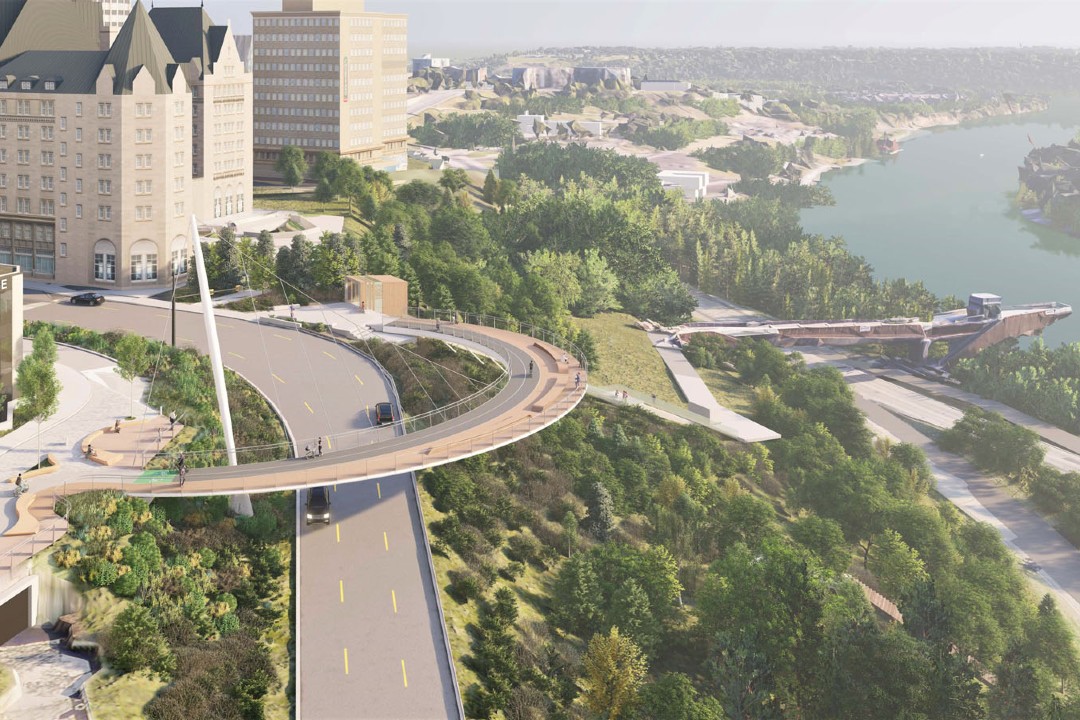
Downtown needs per-door housing incentives, report authors argue
The authors of the new Downtown Investment Plan told the co-hosts of Episode 281 of Speaking Municipally that public investment is necessary to stimulate Edmonton's struggling downtown core, even though the requests are expensive and ambitious.
The plan, detailed in Taproot's Oct. 18 Business Roundup, outlines nearly $500 million in funding requests to the municipal, provincial, and federal governments. Alex Hryciw, chair of the Downtown Revitalization Coalition, and Jason Syvixay, vice-president of strategy and operations for BILD Edmonton Metro, authored the report and told co-hosts Mack Male and Troy Pavlek that concentrated efforts, including per-door incentives, are needed to spur housing development downtown.
"Our region has grown by 64% in the last year, and none of that has been within the core," Hryciw said. "The reason why we need a per-door incentive comes down to the market rates in Edmonton. Our rent hasn't increased like the rest of the country, and we're not facing as big of an affordability crisis as other cities, luckily. But because of that, because rents haven't kept up with inflation, it's very hard for builders to actually convince banks to lend them the money to get these things started (downtown)."
The report's suggestion of a per-door incentive would be part of its larger idea for a $100 million Attainable Housing Fund, which it calls to be created within a year. That plan is a response to challenges created by housing starts downtown, which have been stagnant since 2021, as well as low spending at downtown shops, and the falling share of the city's tax revenues that downtown generates. The report found that number has fallen from 10% to 6.4% as of 2024.
Co-host Pavlek asked why that number matters when the city's operating budget has doubled since the 10% figure was calculated in 2009.
"If you look at downtowns across North America, generally, the healthy percentage that we have seen over the past couple decades has been about that 10 to 20% number," Syvixay said. "When we look at the actual millions in tax revenue that we've assessed, total tax revenue (from downtown) in 2024 was around $155 million. That peak revenue was $191 million in 2018. So, if we look at it just from that dollar value, there has been a pretty stark decrease. And a lot of that really is connected to vacancies in our office space. (In) our assessment base, 80% of that comes from the office and commercial sector … There's kind of a grim story there."
The report drew input from 35 steering committee members from BILD, the Downtown Revitalization Coalition, the Edmonton Chamber of Commerce, the Edmonton Downtown Business Association, NAIOP, and BOMA Edmonton.
Despite the report calling for the Attainable Housing Fund to be created within a year, Hryciw said it could potentially draw on already existing pots of money like the federal Housing Accelerator Fund, of which the City of Edmonton has received $175 million.
"Part of (the Attainable Housing Fund) being in the short term is actually more to express the urgency to all orders of government than it is to say the expectation is we find $100 million and invest this right now," she said. "There are different policy levers we can pull to also help aid with this money."





